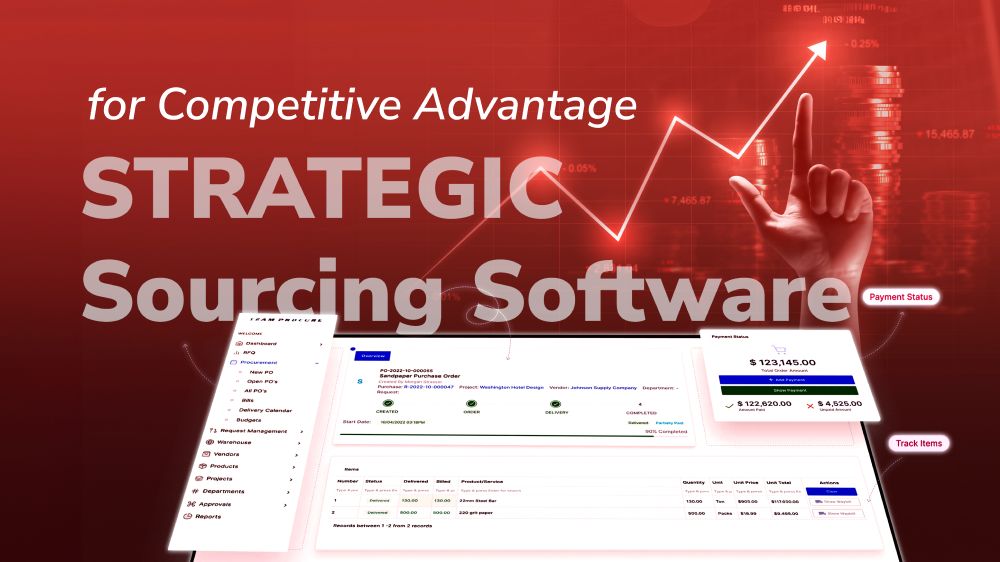The Pros and Cons of IT Outsourcing for Startups

Content Map
More chaptersBeing the founder of a startup presents many unique challenges. You may have a great idea for a new product or service, but this comes with the added pressure of having to bring that idea to the market, often with a limited budget and timeframe. With less money floating around, every dollar spent counts, which makes hiring decisions harder than usual. For this reason, it is vital that startups understand the benefits and challenges of outsourcing, so that they can get the best talent for the job and at a fair price.
What is a Startup?
A startup is a company, or an individual, that aims to bring a unique, singular product or service to the market and turn it into a profitable business. Startups may be founded by one or more people, where the person who came up with the original idea is the ‘founder,’ and anyone else who assisted in the creation of that idea is a ‘co-founder.’
During the early stages of a startup, founders and co-founders may also assume managerial roles, such as CEOs and project leaders. Their role is to guide the vision of the product or service in the right direction, as well as make key business growth decisions to assist with other aspects of the venture, such as customer acquisition and retention, promotion and advertising, product development, market research, and pitching to investors to secure funding.
Since the very nature of being a startup involves bringing a new idea to the market from scratch, money and human resources are often tight. Most startups are funded solely by the founders themselves, who risk it all in the hopes that their idea takes off, so that they can secure funding from angel or capital investors, and then upscale to increase their production capabilities and become a profitable business.
With such a high level of risk attached to startups, it is no wonder that 20 percent of new businesses fail within the first two years of opening, followed by 45 percent during the first 5 years and 65 percent during the first 10 years, according to the U.S. Bureau of Labor Statistics.
What Are the Benefits of IT Outsourcing?
There are many reasons why startups may want to outsource certain IT functions to an outsourcing company. For example, a startup may not have the need, or the capital, to hire an in-house employee on a full-time wage or salary to perform a specific IT function, such as developing a web or mobile application. Or perhaps, a startup may have an innovative idea for a new product or service, and they may need help from an IT expert, one with the kind of specialist skills and knowledge that a locally based worker looking for permanent work may not possess.
With an outsourcing structure, startups can:
Request temporary help for a specific project
With outsourcing, there is no need to commit to hiring a permanent employee. Instead, startups can extend the capabilities of their dedicated team, with an outsourcing company that already has the necessary skills and training to start right away, and with minimal onboarding required.
This means that startups get the help they need, when they need it most, and only pay the outsourcing provider for the time they spend on the project. And sure, while the hourly rate for outsourced teams may be higher than that of a permanent employee, outsourced developers may cost less in the long run as there is no need to commit to a year-long contract or pay for employee benefits such as paid sick leave or maternity leave.
Free up time and resources for their own team
Outsourcing certain IT functions, such as the incorporation of artificial intelligence into your business processes, frees up time and resources for the in-house team to focus on other duties, such as advertising and promotion or customer satisfaction. With networking and brand recognition being such important tasks for startups, which helps them get their name and brand out there, freeing up time to focus on other core business activities.
Better still, with outsourcing, a remote development team will typically have their own in-house project manager. This can save the in-house team from the burden of having to oversee every aspect of a software development project from start to end. Instead, the outsourced team will provide regular progress updates and host feedback sessions. This way, the startup can be confident that progress is going smoothly, and that the project will be delivered on time and within budget.
Gain access to specialist skills and talent
When hiring permanent employees, startups may only have access to a small, local talent pool. But when they expand their horizons to an outsourced team, the possibilities are virtually endless. They can reach out to an outsourcing development team that provides specialist software development services, be it Custom Software Development or QA and Testing and UI/UX design.
Startups can even request multiple services from the same service provider, so as to avoid the hassle of approaching multiple contractors at once. Having access to specialist talent can also open up the possibility of improved innovation of the new product or service in question. Therefore, the startup would gain a competitive edge and stand out from the crowd.
Faster onboarding
A development team that specializes in outsourcing will already have a fully equipped team, ready to go. They take the time to understand the needs of the client, and then use that information to recruit a custom team that meets those requirements.
For instance, a project may call for a service provider with access to talent specializing in CRM (Customer Relationship Management) solutions. With this in mind, the vendor can call on the help of those team members, and then use their skills and knowledge to deliver the CRM project.
And this is all achieved without the need for a startup to train or upskill the new team members, either. Everything is taken care of for them. This saves startups tremendous time in recruiting new staff, and making sure they have the right skills and knowledge for the job.
What Are the Challenges of Outsourcing for Startups?
Despite the many benefits of outsourcing, there are challenges to overcome. If a startup fails to identify and manage these challenges, they may not utilize outsourcing to its full potential, resulting in disappointing results and potentially dismissing the idea of outsourcing for future projects.
There are many ways an outsourcing agreement can turn sour: the service provider may not be the right fit, the startup may struggle to communicate their needs to the vendor, or the startup may be unprepared for cultural or language barriers. Either way, it is vital that startups anticipate these issues and formulate a strategy to avoid or overcome them – before they reach out to vendors for quotes.
Some of the most common challenges that startups face when outsourcing IT functions to a vendor include the following.
Inability to define their project scope
Startups are known for having big ideas and pushing boundaries. However, their ambition can make it hard for vendors to “get” their vision, especially those who are not already familiar with the target audience that the product or service is for.
To overcome this problem, startups should learn how to convey their vision and goals to others, in a way that is easy to make sense of. The vision and goals do not have to be super-specific, but they should at least be enough for the vendor to understand and use as a reference to complete the project.
For example, if a startup can accurately convey their desire to speed up the production process, a software developer can then use this information to propose an automation solution that may work for them.
Cultural and language barriers
Clear communication is essential to a positive client-vendor working relationship. Unfortunately, due to the remote nature of many outsourced projects, clients may end up working with vendors who are in parts of the world that they are not familiar with. This can lead to conflict if the client does not understand certain cultural practices, is not able to communicate properly with the vendor, or they cannot deal with the time zone difference.
To avoid this issue, startups should take the time to assess the vendor’s written and verbal communication skills. They should also ask the vendor to outline their work process, as this will give the startup time to compare different workflows and choose one that works for them. They should also be aware of the potential time zone differences and be realistic about the potential for real-time collaboration and problem-solving when both parties are on different sides of the world. Startups should account for potential delays in response times, which they can factor into their estimated timelines when preparing the project scope.
Data security and privacy
Sharing sensitive information with a vendor can be a stressful prospect for a startup. They will definitely want to protect their intellectual property, processes, workflows, accounts, customer and employee information, and other relevant data. For this reason, it is important that startups seek independent legal advice and have legally binding NDAs (Non-Disclosure Agreements) documentation prepared. The NDAs should clearly outline that, if a vendor is to gain access to proprietary information, they have an obligation to keep those details secret.
Thankfully, by having this documentation ready in advance, startups can comfortably approach vendors and clearly outline their data security and privacy needs, in plain simple language. Some vendors may have their own legally binding agreements and policies in place, so as to give clients peace of mind that their data is safe. Either way, make sure a formal agreement is in place between both parties, and that everyone understands the terms and conditions of those agreements.
Common Software Development Tasks for Startups to Outsource
There are many software development tasks that startups can outsource to add value to their venture. These range from Mobile and Web Application Development and Artificial Intelligence to QA and Testing. Regardless of the type of software development task that a startup needs, there are many benefits to outsourcing these tasks to an outside vendor, as they can provide the specialist skills and expertise needed to bring an idea to life.
Below is a quick breakdown of the most common software development tasks to outsource and how they can add value to a startup venture.
Mobile and web application development
Mobile and web application development has become a popular choice for startups wanting to establish a strong online presence and engage with their target audience on mobile devices. Having a separate mobile app over a traditional website can provide superior speed and performance, take advantage of a smartphone’s built-in features (i.e. location services, camera, microphone), and help you reach a whole new target audience. Furthermore, web and mobile applications can be upscaled over time, adding more features and services to enhance the user experience.
QA and testing
QA and testing are one of the most important steps in the quality assurance process. These tasks confirm that a software application works as intended, is free of unwanted bugs or errors, provides a seamless user experience, and is safe from the threat of cybersecurity threats such as unauthorized third-party access and the presence of malware or trojans.
In addition to this, when QA and testing are implemented into the software development process early, vendors can catch bugs and errors sooner rather than later, resulting in the launch of a higher-quality software application that exceeds expectation
Artificial intelligence
Artificial intelligence is the use of complex algorithms, machine learning, and big data to teach computer systems to mimic human intelligence. This involves teaching a system to solve complex problems on its own, with minimal, if any, ongoing supervision.
Artificial intelligence is commonly used in commercial applications to automate tasks that were previously done manually by people. It is being used across a wide variety of industries, such as healthcare, where companies like aidoc are trialling the use of artificial intelligence solutions to predict stroke outcomes faster and more accurately, along with facial recognition, where Apple’s TrueDepth camera can project over 30,000 invisible dots to create a depth map of a person’s face, which the device can then use as a form of user verification.
Outsourcing: A Smart, Viable, and Cost-Effective Solution

The popularity of outsourcing has soared over the years, especially in light of the COVID-19 pandemic, where people have had to work remotely through a hybrid or permanent WFH (Work from Home) arrangement, and companies have gone through major structural changes to accommodate for the new world of remote work.
Furthermore, outsourcing is more feasible than ever, thanks to the advent of cloud computing solutions that make it possible for both internal team members and outsourced staff to communicate, share files, and collaborate in real-time on projects. By speeding up the feedback cycle, and making providing real-time feedback easier than ever, outsourcing is a great way to satisfy hard-to-fill and temporary roles and acquire the necessary skills to be competitive in your field.
For more information about Orient Software’s staff augmentation services and other software development company services, get in touch today.







